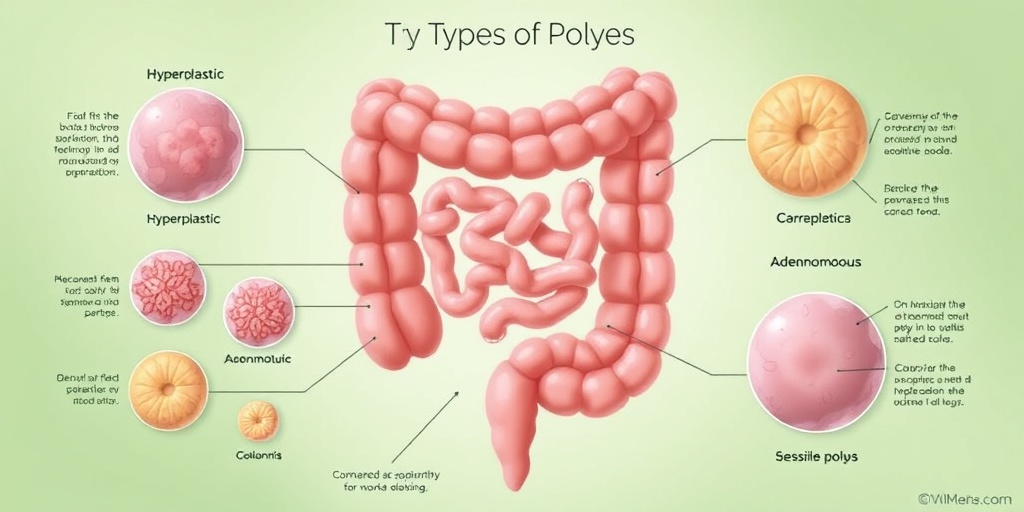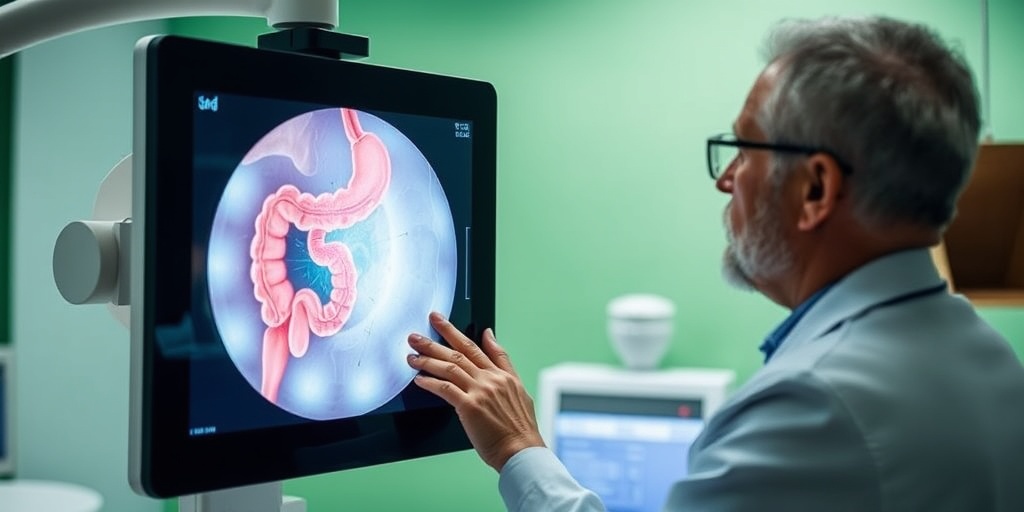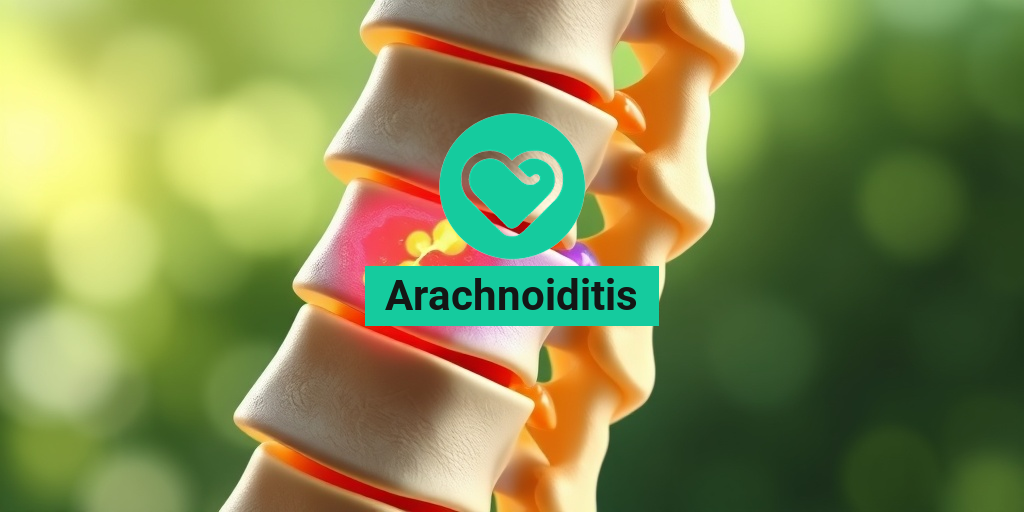What Is a Polyp?
A polyp is a growth that forms on the lining of various organs in the body, most commonly in the colon, stomach, and nasal passages. These growths can vary in size and shape, and while many polyps are benign (non-cancerous), some can develop into cancer over time. Understanding what polyps are and how they can affect your health is crucial for early detection and prevention.
Polyps are typically classified as either sessile (flat) or pedunculated (attached to the lining by a stalk). They can be discovered during routine screenings, such as colonoscopies, where doctors can remove them for further examination. Regular screenings are essential, especially for individuals over the age of 50 or those with a family history of polyps or colorectal cancer.
Symptoms of Polyps
Many people with polyps may not experience any symptoms, which is why regular screenings are so important. However, some potential symptoms can include:
- Rectal bleeding
- Changes in bowel habits, such as diarrhea or constipation
- Abdominal pain or discomfort
- Unexplained weight loss
If you experience any of these symptoms, it’s essential to consult a healthcare professional for further evaluation.
Types of Polyps
There are several types of polyps, each with distinct characteristics and implications for health. Understanding these types can help you take proactive steps in managing your health.
1. Adenomatous Polyps
Adenomatous polyps are the most common type of polyp found in the colon. They are considered precursors to colorectal cancer, meaning they have the potential to become cancerous over time. There are three subtypes of adenomatous polyps:
- Tubular adenomas: These are the most common and have a lower risk of becoming cancerous.
- Tubulovillous adenomas: These have a mix of tubular and villous features and carry a moderate risk of cancer.
- Villous adenomas: These are less common but have a higher risk of becoming cancerous.
2. Hyperplastic Polyps
Hyperplastic polyps are generally small and considered benign. They are usually found in the colon and are not associated with an increased risk of colorectal cancer. However, their presence can sometimes indicate the need for further monitoring.
3. Inflammatory Polyps
These polyps often arise in response to inflammation in the gastrointestinal tract, such as in conditions like ulcerative colitis or Crohn’s disease. While inflammatory polyps are typically benign, they can be a sign of underlying gastrointestinal issues that require attention.
4. Sessile Serrated Polyps
Sessile serrated polyps are a type of polyp that can also develop into colorectal cancer. They are often flat and can be harder to detect during screenings. Regular monitoring and removal are crucial for preventing potential cancer development.
5. Nasal Polyps
Nasal polyps are soft, painless growths that develop in the lining of the nasal passages or sinuses. They are often associated with conditions like asthma, allergies, or chronic sinus infections. While they are not cancerous, they can cause symptoms such as nasal congestion, loss of smell, and sinus pressure.
Conclusion
Understanding polyps and their types is essential for maintaining your health. Regular screenings and consultations with healthcare professionals can help detect polyps early, allowing for timely intervention and management. If you have concerns about polyps or related symptoms, consider reaching out to a healthcare provider or visiting Yesil Health AI at yesilhealth.com for evidence-based health answers. Remember, early detection is key to preventing potential complications! 🌟

Polyp Symptoms
Polyps are abnormal growths that can develop in various parts of the body, most commonly in the colon, stomach, and nasal passages. While many polyps are benign, they can sometimes lead to more serious health issues, including cancer. Recognizing the symptoms of polyps is crucial for early detection and treatment. Here are some common symptoms associated with polyps:
1. Gastrointestinal Symptoms
When polyps form in the gastrointestinal tract, they may cause a range of symptoms, including:
- Abdominal Pain: Discomfort or cramping in the abdomen can be a sign of polyps, especially if they are large.
- Changes in Bowel Habits: This includes diarrhea, constipation, or alternating between the two.
- Blood in Stool: The presence of bright red or dark blood in your stool can indicate polyps, particularly in the colon.
- Unexplained Weight Loss: Losing weight without trying can be a symptom of underlying health issues, including polyps.
2. Nasal Polyps Symptoms
Nasal polyps can lead to a variety of symptoms that affect breathing and overall nasal health:
- Blocked Nasal Passages: This can cause difficulty breathing through the nose.
- Loss of Smell: Nasal polyps can impair your sense of smell, leading to a diminished ability to enjoy food and detect odors.
- Frequent Sinus Infections: Chronic sinusitis may occur due to the obstruction caused by polyps.
- Facial Pain or Pressure: Discomfort in the face, particularly around the eyes and forehead, can be a sign of nasal polyps.
3. Other Symptoms
In some cases, polyps may not cause noticeable symptoms until they grow larger or lead to complications. Other potential symptoms include:
- Fatigue: Chronic fatigue can sometimes be linked to polyps, especially if they cause internal bleeding.
- Fever: If polyps lead to infections, a fever may occur.
If you experience any of these symptoms, it’s essential to consult a healthcare professional for proper evaluation and diagnosis. Early detection can significantly improve treatment outcomes. 🩺
Causes of Polyps
Understanding the causes of polyps is vital for prevention and management. While the exact cause can vary depending on the type of polyp, several factors contribute to their development:
1. Genetic Factors
Some individuals may have a genetic predisposition to developing polyps. Conditions such as familial adenomatous polyposis (FAP) and Lynch syndrome significantly increase the risk of colorectal polyps and cancer. If you have a family history of polyps or colorectal cancer, it’s crucial to discuss screening options with your doctor.
2. Lifestyle Choices
Certain lifestyle factors can also play a role in the development of polyps:
- Diet: A diet high in red and processed meats and low in fruits, vegetables, and fiber may increase the risk of colorectal polyps.
- Obesity: Being overweight or obese is linked to a higher risk of developing polyps.
- Smoking: Tobacco use has been associated with an increased risk of various types of polyps.
- Alcohol Consumption: Excessive alcohol intake can also contribute to the formation of polyps.
3. Age and Gender
Age is a significant risk factor for developing polyps, particularly colorectal polyps. Most cases occur in individuals over the age of 50. Additionally, men are generally at a higher risk than women for developing certain types of polyps.
4. Chronic Inflammation
Chronic inflammatory conditions, such as inflammatory bowel disease (IBD), can increase the likelihood of polyp formation. Conditions like ulcerative colitis and Crohn’s disease can lead to changes in the intestinal lining, making it more susceptible to polyps.
While not all polyps are preventable, understanding their causes can help you make informed lifestyle choices and seek appropriate medical advice. Regular screenings and a healthy lifestyle can significantly reduce your risk of developing polyps and related complications. 🌱

Risk Factors for Polyps
Polyps are abnormal growths that can develop in various parts of the body, most commonly in the colon and rectum. Understanding the risk factors associated with polyps is crucial for prevention and early detection. Here are some key factors that may increase your likelihood of developing polyps:
1. Age
As you age, the risk of developing polyps increases significantly. Most polyps are found in individuals over the age of 50. Regular screenings, such as colonoscopies, are recommended starting at this age to catch any potential issues early.
2. Family History
If you have a family history of polyps or colorectal cancer, your risk is heightened. Genetic factors can play a significant role, making it essential to discuss your family medical history with your healthcare provider.
3. Lifestyle Factors
Your lifestyle choices can also influence your risk of developing polyps. Consider the following:
- Diet: A diet high in red and processed meats and low in fruits, vegetables, and whole grains may increase your risk.
- Physical Activity: Sedentary lifestyles are linked to a higher incidence of polyps. Regular exercise can help mitigate this risk.
- Smoking and Alcohol: Both smoking and excessive alcohol consumption have been associated with an increased risk of polyps.
4. Medical Conditions
Certain medical conditions can also elevate your risk of developing polyps. These include:
- Inflammatory Bowel Disease (IBD): Conditions like Crohn’s disease and ulcerative colitis can lead to an increased risk of polyps.
- Obesity: Being overweight or obese is linked to a higher risk of colorectal polyps.
5. Hormonal Factors
Some studies suggest that hormonal factors may influence polyp development, particularly in women. For instance, postmenopausal women who are not on hormone replacement therapy may have a different risk profile compared to those who are.
Polyp Diagnosis
Diagnosing polyps typically involves a combination of medical history, physical examinations, and specific diagnostic tests. Early detection is vital for effective treatment and management. Here’s how healthcare providers typically diagnose polyps:
1. Medical History and Symptoms
Your healthcare provider will start by taking a detailed medical history and asking about any symptoms you may be experiencing. Common symptoms of polyps can include:
- Rectal bleeding
- Changes in bowel habits
- Abdominal pain or discomfort
However, many polyps do not cause symptoms, which is why regular screenings are essential.
2. Physical Examination
A physical examination may include a digital rectal exam (DRE) to check for abnormalities in the rectum. This is often a preliminary step before more advanced diagnostic procedures.
3. Colonoscopy
The most definitive method for diagnosing polyps is through a colonoscopy. During this procedure, a long, flexible tube with a camera is inserted into the rectum to visualize the colon. If polyps are found, they can often be removed during the procedure for further analysis.
4. Imaging Tests
In some cases, imaging tests such as a CT colonography (virtual colonoscopy) may be used to detect polyps. This non-invasive method provides detailed images of the colon and can help identify polyps that may not be visible during a traditional colonoscopy.
5. Biopsy
If polyps are removed during a colonoscopy, they are sent to a laboratory for a biopsy. This analysis helps determine whether the polyp is benign or has the potential to become cancerous. Understanding the type of polyp is crucial for determining the appropriate follow-up care.
In conclusion, being aware of the risk factors for polyps and understanding the diagnostic process can empower you to take charge of your health. Regular screenings and open communication with your healthcare provider are key to early detection and effective management. 🩺✨

Polyp Treatment Options
When it comes to managing polyps, understanding the available treatment options is crucial. Polyps are abnormal growths that can occur in various parts of the body, most commonly in the colon, but they can also appear in the nasal passages, stomach, and other areas. Depending on their type, size, and location, treatment options may vary.
1. Monitoring and Surveillance
For small, benign polyps, especially in the colon, doctors may recommend a watchful waiting approach. This involves regular surveillance through colonoscopy to monitor any changes in the polyps. If they remain stable and show no signs of cancer, treatment may not be necessary. Regular screenings are essential, as they can help detect any changes early on.
2. Polypectomy
One of the most common treatments for polyps, particularly in the colon, is a procedure called polypectomy. This minimally invasive procedure is often performed during a colonoscopy. The doctor uses specialized tools to remove the polyp while visualizing it on a monitor. This method is effective for most polyps and can help prevent the development of colorectal cancer.
3. Medications
In some cases, medications may be prescribed to manage polyps, especially if they are associated with conditions like familial adenomatous polyposis (FAP) or Lynch syndrome. These medications can help reduce the number of polyps or slow their growth. However, they are not a substitute for surgical removal when necessary.
4. Surgery
For larger or more complex polyps, surgical intervention may be required. This could involve removing a section of the affected organ, such as the colon, if the polyp is large or has precancerous changes. Surgical options vary based on the location and type of polyp, and a healthcare provider will determine the best approach based on individual circumstances.
5. Lifestyle Changes
While not a direct treatment, making certain lifestyle changes can help reduce the risk of developing new polyps. A diet rich in fruits, vegetables, and whole grains, along with regular exercise, can contribute to overall colon health. Additionally, avoiding smoking and limiting alcohol intake can also play a role in prevention.
Preventing Polyps
Prevention is always better than cure, especially when it comes to polyps. While not all polyps can be prevented, there are several strategies that can significantly reduce your risk.
1. Regular Screenings
One of the most effective ways to prevent polyps, particularly in the colon, is through regular screenings. The American Cancer Society recommends that individuals at average risk begin screening at age 45. Those with a family history of polyps or colorectal cancer may need to start earlier. Early detection can lead to the removal of polyps before they develop into cancer.
2. Healthy Diet
A diet high in fiber and low in saturated fats can help reduce the risk of polyps. Incorporating a variety of fruits, vegetables, and whole grains into your meals can promote digestive health. Foods rich in polyphenols, such as berries, green tea, and dark chocolate, may also have protective effects against polyp formation. 🍓🥦
3. Maintain a Healthy Weight
Obesity is a known risk factor for developing polyps and colorectal cancer. Maintaining a healthy weight through a balanced diet and regular physical activity can help lower your risk. Aim for at least 150 minutes of moderate-intensity exercise each week to support overall health. 🏃♂️💪
4. Limit Alcohol and Avoid Tobacco
Excessive alcohol consumption and tobacco use are linked to an increased risk of polyps and colorectal cancer. Limiting alcohol intake to moderate levels and avoiding tobacco products can significantly reduce your risk. If you need help quitting smoking, consider seeking support from healthcare professionals or support groups.
5. Stay Hydrated
Drinking plenty of water is essential for digestive health. Staying hydrated helps maintain regular bowel movements and can aid in the prevention of constipation, which is associated with an increased risk of polyps. Aim for at least 8 glasses of water a day, adjusting based on your activity level and climate. 💧
By understanding the treatment options available and implementing preventive measures, you can take proactive steps towards managing and reducing the risk of polyps. Remember, regular check-ups and open communication with your healthcare provider are key to maintaining your health.

Frequently Asked Questions about Polyps
What is a polyp?
A polyp is a growth that forms on the lining of certain organs, such as the colon, stomach, or nasal passages. These growths can vary in size and shape and may be benign (non-cancerous) or malignant (cancerous).
What are the types of polyps?
- Hyperplastic polyps: Generally benign and often found in the colon.
- Adenomatous polyps: These have the potential to become cancerous over time.
- Sessile polyps: Flat and broad-based, often harder to remove.
- Pedunculated polyps: Attached to the lining by a stalk, making them easier to remove.
What causes polyps to form?
The exact cause of polyps is not fully understood, but several factors may contribute, including:
- Genetics: Family history of polyps or colorectal cancer.
- Age: Risk increases with age, especially after 50.
- Diet: High-fat, low-fiber diets may increase risk.
- Inflammatory conditions: Conditions like ulcerative colitis or Crohn’s disease.
How are polyps diagnosed?
Polyps are typically diagnosed through screening procedures such as:
- Colonoscopy: A procedure that allows doctors to view the colon and remove polyps.
- Sigmoidoscopy: Similar to a colonoscopy but examines only the lower part of the colon.
- Imaging tests: Such as CT scans or MRIs may help in identifying polyps.
What are the symptoms of polyps?
Many polyps do not cause symptoms, but some may lead to:
- Rectal bleeding
- Changes in bowel habits
- Abdominal pain
If you experience any of these symptoms, it is important to consult a healthcare professional.
How are polyps treated?
The treatment for polyps usually involves removal, especially if they are adenomatous or show signs of cancer. This can be done during a colonoscopy. Follow-up care may include:
- Regular screenings to monitor for new polyps.
- Changes in diet and lifestyle to reduce risk.
Can polyps be prevented?
While not all polyps can be prevented, certain lifestyle changes may help reduce the risk:
- Eating a balanced diet rich in fruits, vegetables, and whole grains.
- Maintaining a healthy weight.
- Exercising regularly.
- Avoiding smoking and limiting alcohol consumption.
When should I see a doctor?
If you have a family history of polyps or colorectal cancer, or if you experience symptoms such as rectal bleeding or significant changes in bowel habits, it is advisable to see a healthcare provider for evaluation and possible screening.
Are there any dietary recommendations for those with polyps?
Yes! Incorporating polyphenols found in fruits, vegetables, and whole grains may be beneficial. Foods rich in fiber can also help maintain a healthy digestive system.
Can polyps recur after removal?
Yes, polyps can recur after removal. Regular screenings are essential to monitor for new growths and to manage any potential risks effectively.




